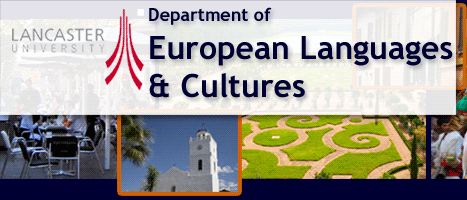
NEWS AND EVENTS ARCHIVE (2009-2014)
Archive
Exploring Interdisciplinary Approaches to Albinism
Date: 20 September 2013 Time: 09.00-17.00
Venue: Lancaster University Conference Centre
The principal objective of this workshop is to engage with the value of interdisciplinarity as a means of better understanding a genetic condition that has a profound effect on the everyday lives of people with albinism in sub-Saharan Africa.
People with albinism lack melanin pigment in their hair, skin and eyes, making them strikingly different in appearance from the vast majority of black Africans. Oculocutaneous albinism is found in all populations, although at different frequencies. In Bantu-speaking populations in Africa 1 in 2-4000 people are affected (up to 10 times greater than in the UK, around 1 in 17000). The lack of protective pigment in the skin makes those living with albinism extremely sensitive to the sun. The effect of the condition on their poor vision has a major impact on daily life.
Throughout sub-Saharan Africa, accurate information on albinism is difficult to obtain and a lack of awareness of the genetic nature of the condition endures. As a result, people with albinism are often the focus of taboo and prejudice, and can be seen to embody a web of beliefs and superstitions. A wave of recent killings of people with albinism in East Africa for their body parts has made headlines across the world and albinism is now recognised as a life-threatening condition in parts of Africa.
The workshop at Lancaster University on Friday 20th September 2013 will bring together ten experts with a shared interest in albinism from the UK, Europe and Africa. These experts come from different academic backgrounds. Their research interests range from genetics to the socio-cultural realities of living with the condition in sub-Saharan Africa, through education to cultural representations of albinism. Although part of an international network, these experts have not until now had the opportunity to meet and discuss their shared knowledge of albinism with a view to developing a fuller understanding of an intrinsically interdisciplinary, socially informative phenomenon.
The workshop is funded by The Wellcome Trust.
Contact:
Who can attend: Anyone
Further information
Associated staff: Charlotte Baker
Organising departments and research centres: European Languages and Cultures
Keywords: Africa, Albinism